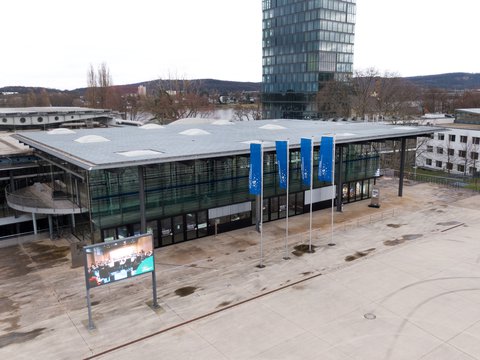In 2024, we will celebrate 75 years of the German Basic Law. To round off the festival on the Day of German Unity, we invite you to the Democracy Music Festival at iconic locations of the Bonn Republic. Beethovenfest Managing Director Michael Gassmann guides us through his home – the government district of Bonn.

What does it take for democracy to work? Certainly not palaces. More like a Bundesbüdchen. For someone like me, who grew up in this colourful part of Bonn called the government district, the newspaper and sausage kiosk from 1957 symbolises everything that made up the district of the old federal capital: Closeness, down-to-earthness, a kind of familiarity that certainly did German democracy good. The populists’ derogatory »those up there« attitude didn’t quite work here; at least I learnt in this neighbourhood that politics is made by people like you and me who deserve respect.
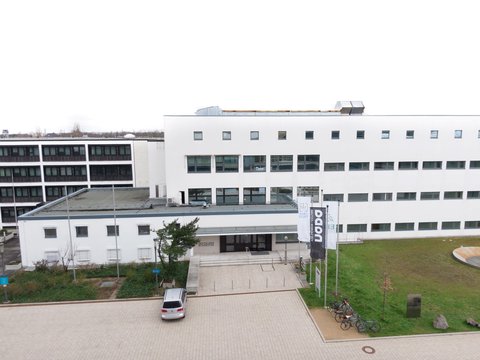
When the second democracy on German soil began in 1948/49, there was almost nothing here: a few villas from the beginning of the 20th century, a sports field, tulip fields and the Pedagogical Academy, inaugurated in 1933, a strong piece of Bauhaus architecture that was not at all loved by the National Socialists. The democrats were able to build on this tradition. The academy was extended and remodelled, its auditorium became the hall of the Bundesrat, the gymnasium the lobby of the new plenary chamber of the Bundestag built in 1948/49. Subsequently, only what was necessary was built: a first building for MPs’ offices in 1952, then a second (the Lange Eugen, now the UN Campus) and finally a third (the Schürmannbau, now Deutsche Welle).
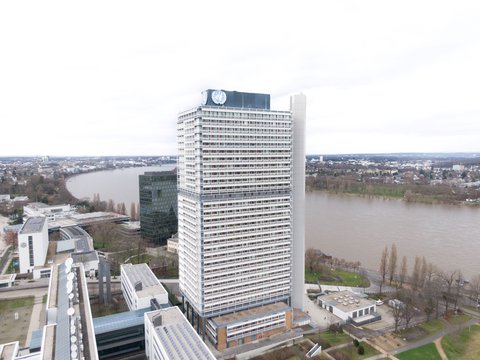
There were also several state representations, the last of which was Rhineland-Palatinate’s in Heussallee in 1990. Two 19th-century villas, Palais Schaumburg and Villa Hammerschmidt, were refurbished to fulfil the limited need for prestige. One was refurbished as the Federal Chancellery, the other for the Federal President.
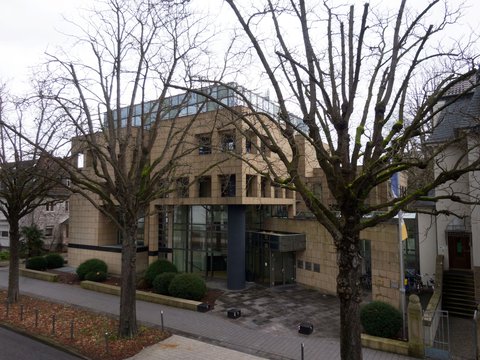
I remember this neighbourhood as quiet and almost cosy, with sports fields where the Deutsche Welle now stands, with small houses and gardens instead of the World Conference Center, with fields instead of the Rheinaue parc.
It only became more metropolitan with the planned move to Berlin, in a mixture of late blossoming and new beginnings: The new Bundestag plenary chamber, the Museum Mile with the Bundeskunsthalle (a legacy of Helmut Kohl), the Post Tower, the World Conference Centre and the United Nations Campus gradually emerged. Today it is more lively here than in the days of the capital, but it has remained familiar, not least thanks to the many food trucks – and a reopened Bundesbüdchen as a lunch break hotspot.
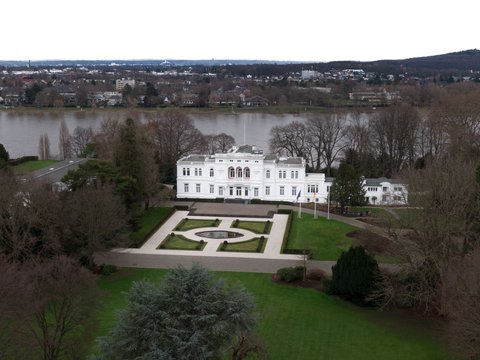
Democracy Music Festival in the former government district: All events
